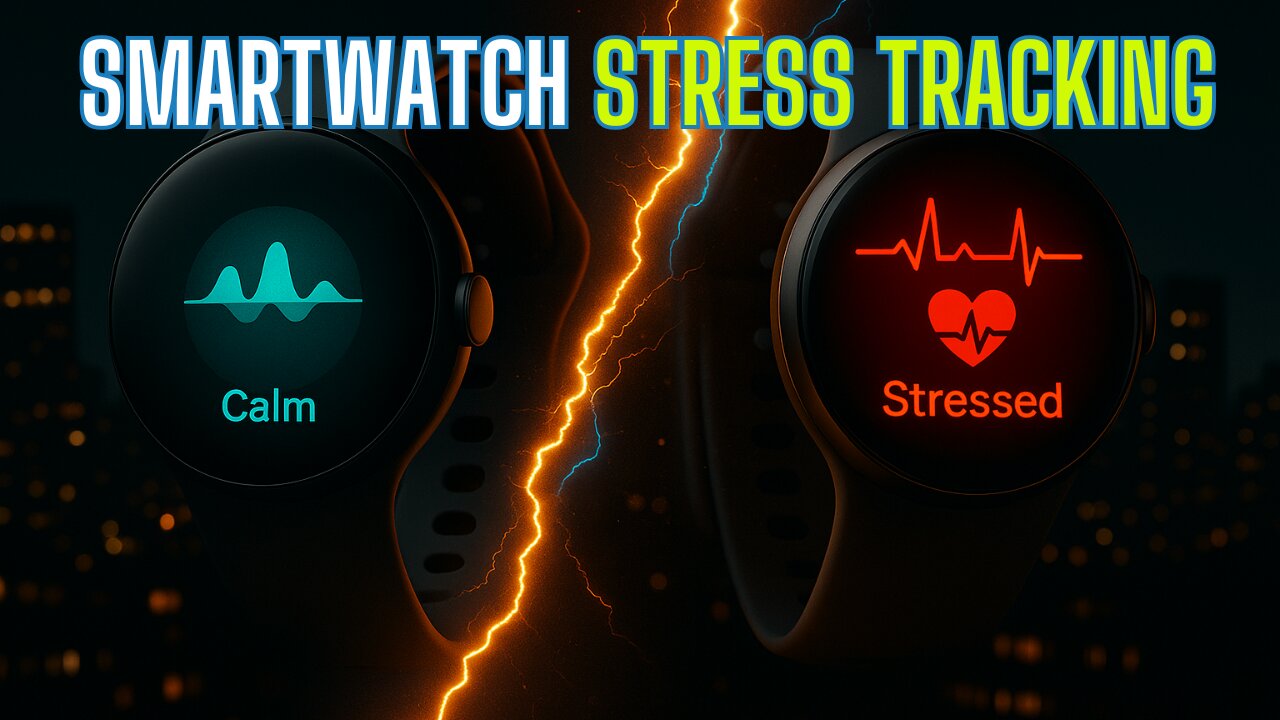Premium Only Content

WHAT YOUR SMARTWATCH ISN’T TELLING YOU ABOUT STRESS!
SHOCKING TRUTH ABOUT SMARTWATCH STRESS TRACKING IN 2025!
Are stress-tracking smartwatches truly accurate, or are they giving us a false sense of security?
In this video, we dive into the SHOCKING TRUTH ABOUT SMARTWATCH STRESS TRACKING IN 2025, uncovering the myths, facts, and real-world performance of the latest stress-tracking wearable tech. From Google Pixel Watch 2 to Fitbit Sense 2, we explore how today’s most advanced smartwatch stress monitors actually function — and whether you should trust the data they show.
You’ll discover the secrets of smartwatch stress detection, how HRV (Heart Rate Variability), cEDA (continuous Electrodermal Activity), and body sensors are used to "read" your emotional state, and how environmental and internal factors influence readings. We cover the science and real stress tracking accuracy behind these devices.
Learn about leading stress-tracking devices like:
- Google Pixel Watch 2
- Oura Ring Gen 4
- Whoop 4.0
- Garmin Venu 3
- Fitbit Sense 2
Each uses different stress detection technology — from EDA sensors to HRV analysis — and while many claim 70%+ accuracy in ideal settings, their performance in the chaos of daily life often tells a different story.
Smartwatches promise wellness, but can they tell the difference between a bad day and a gym session?
In 2025, users are investing more than ever in health tracking wearables. The Google Pixel Watch 2, priced around $349, is praised for its smooth integration with Fitbit’s cEDA sensor. The Oura Ring Gen 4 costs $299 and introduces new "Daytime Stress" and "Resilience" scores. Whoop 4.0, on a $30/month subscription, offers high-performance tracking but raises questions over long-term affordability. Fitbit Sense 2 at $299 and Garmin Venu 3 at $449 offer compelling alternatives.
We reveal the true cost of trusting your stress score. Did you know your smartwatch might flag you as stressed while you’re meditating — or calm during a panic attack?
This video challenges assumptions and asks big questions:
- Can a watch really read your feelings?
- Are we outsourcing mental health to algorithms?
- Is wellness tech helping, or harming?
We showcase real stories from users, the latest studies, and predictions for where stress-tracking tech is headed next. Could future wearables diagnose anxiety, prevent burnout, or even report emotional instability to your employer?
We’re entering an era where mental health meets machine logic — and the results are fascinating, scary, and hopeful.
By the end of the video, you’ll have the full picture: how stress tracking works, when it fails, and what it really means for you.
If you’ve ever relied on your smartwatch to tell you how you feel — or you’re considering buying one — this is a must-watch.
✅ Like, comment, and subscribe for more in-depth tech breakdowns. ✅ Share your experiences with stress tracking in the comments. ✅ Visit our blog for expert reviews and guides: https://www.digitaltechnology.cloud/
-
 12:06
12:06
Liberty Hangout
1 day agoDemocrat Woman Can't Define 'Woman'
26.6K56 -
 LIVE
LIVE
GritsGG
5 hours agoRumble Customs! 3515 Ws! 🫡!
423 watching -
 38:39
38:39
Grant Stinchfield
3 hours ago $1.06 earnedHow Local TV News LOST Its Soul
10.8K2 -
 2:09:51
2:09:51
Badlands Media
13 hours agoBadlands Daily: Sept. 1, 2025 – Trump vs. Big Pharma, Giuliani Crash, and Mortgage Fraud Fallout
44.4K33 -
 1:12:35
1:12:35
theoriginalmarkz
4 hours agoCoffee with MarkZ. 09/01/2025
43.2K12 -
 2:59:48
2:59:48
Wendy Bell Radio
9 hours agoSunday, Bloody Sunday
127K252 -
 1:10:02
1:10:02
crgoodw1n
3 hours agoHAPPY LABOR DAY! Tactical shoosting W/ @BenderOdoyle Ask about !12hr !freshenup !discord
14.7K2 -
 LIVE
LIVE
ENEMYOFDEATH2012
15 hours agoGod of War Playthrough Pt. 2 and some Fortnite
17 watching -
 4:47:50
4:47:50
The Why Files
3 days agoCOMPILATION: UFOs and Aliens Vol.2 | They are NOT our friends
95.8K54 -
 1:33:46
1:33:46
BubbaMatt
4 hours ago $0.13 earnedMafia Definitive Edition Playthrough - Part 1
5.15K